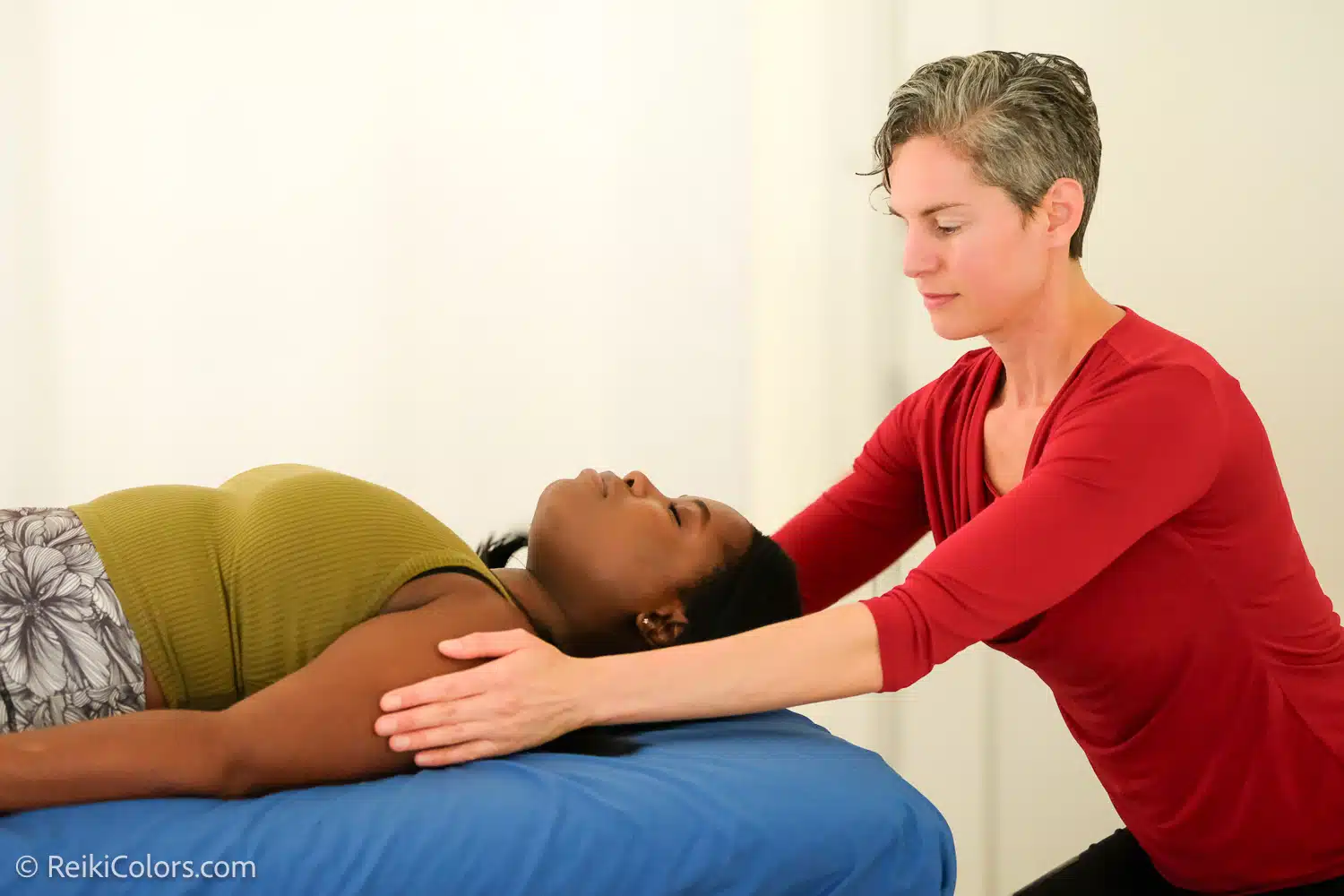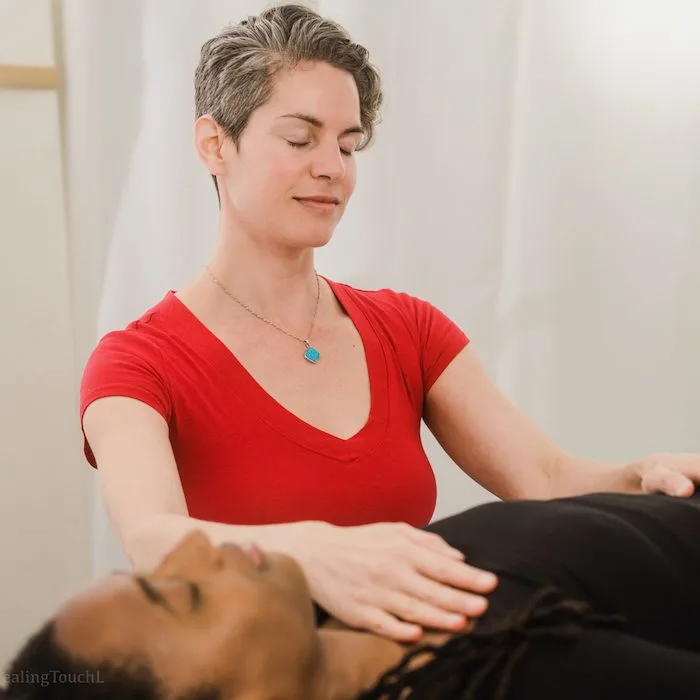As a Reiki Master who has done numerous Reiki certification courses and attunements over the past decade in a many different kinds of energy work and chakra balancing, I’m often asked for advice by those starting their journey about how to become a certified touch healer. Thus it was time for me to write this article to help!
For background, I run a Boston Reiki studio and have worked in person with hundreds of clients since 2018. My certifications are in Usui, Kundalini, and Holy Fire Reiki I, II, III: Master Teacher Level, and I have studied under three different expert teachers, each of whom is directly connected to Ms. Hawayo Takata, the woman who brought this practice from Japan to America in 1938.

I do run Reiki training and certification courses in Boston, myself, but as the readership of this blog is worldwide, I recognize that the majority of you will be seeking to study with other practitioners closer to your home base, so I am happy to counsel you on how to find good ones. I have seen what works and what doesn’t — both from their experience and from my own. Here are the top pieces of advice.
Reiki Certification Tips
1. It’s worth it, and is powerful transformation.
Taking part in a quality Reiki course can be life-changing. Even if you don’t go on to become a practitioner, there is so much to be learned from the methods of connection and energy work that can be applied to one’s own daily world.
I had profoundly beautiful and powerful moments that I will never forget in the days I spent in my chakra balancing classes. (See “Is Reiki Real?” for more on this.)
2. Do in-person courses.
Though distance Reiki and online learning has many benefits, I cannot stress enough how much better Reiki training is in person. Yes, energy work can be done without touch, and yes, you could practice on yourself or a second person in your room while watching the instruction on a screen — but much is gained by gathering to do it in person with a group.
How long is a typical Reiki certification course? They are usually about three full days of content for each level, either clustered in one weekend or week, or spread out across several weekends. I’ve done both versions, and see benefits to each.
3. When you’re ready, the teacher will come.
The Reiki saying goes: “When you’re ready, the teacher will appear.” This means that once you realize that learning energy work is the path you want — and maybe even need — you will begin to find opportunities to study it. But how do you know if courses are legitimate? Read on…
4. Request references if unsure of quality.
As I explained in my article on how to spot and avoid a Reiki scam, asking a potential energy worker for references is a solid way to assess their quality. Most effective practitioners and teachers can easily provide you with at least three former clients or students who can vouch for their work. Don’t be shy to ask, because trainings can be expensive. Just how expensive?
5. Weigh costs of each Reiki certification course.
While a Reiki session cost can hover around $100, Reiki certification courses usually run several hundred dollars, if not close to $1000. Even if the classes are high-quality, this price range may or may not be worth it to you, depending on two factors.
The first thing that would make it worth it is if you’ll be starting your own practice soon, and thus earn back the money. The second factor would be if you know you’ll enjoy it and learn life skills from it. This would mean that even if you never start your own business, you’ll basically be taking an interesting class that’s like a vacation or workshop out of the ordinary — which is always worth it.
6. Ask for modifications if needed.
Just as making requests during bodywork is important, making requests about a course you are taking is an often-overlooked option that can help certification classes fit better with your situation. For example, for my Master Teacher Training, the course was offered as a three-day series. Because there were only two people in the class, I made the request to the instructor about whether we could do the work in two longer days rather than three shorter ones (since that worked much better for my job and family schedule) — and she was able to make that happen!
7. Research local requirements and regulations.
If you are opening your own Reiki studio, always do due diligence for what to put in place in terms of liability, insurance, business registration, and local certification. Joining city, state, and regional Reiki and small business groups can help support this research.
8. Continue training widely.
Many people just take a Reiki I course and stop there, but there is so much more to be gained by training in other forms of energy work (ex: both Usui and Kundalini, or getting to Reiki III with Dai Ko Myo). If you enjoy your first course, try at least one more, even if you won’t necessarily be starting your own practice. The learning is useful for life in general.
Reiki Certification, in Sum
I hope this article has been useful, as we begin to train in the world of Reiki Principles and techniques. What have been your experiences with Reiki certification courses, and what questions do you still have? Do share…

The creator of this site, Lillie Marshall, is a Reiki practitioner who is certified in three different kind of energy work, including Usui and Kundalini Reiki. She began her formal training in 2018, and now runs Healing Touch “L” Reiki in Boston, where she has become one of the top-rated practitioners in Massachusetts, conducting hundreds of sessions with clients. Having been a public school teacher for many years, Lillie is passionate about writing articles to educate people far and wide about the wonderful, natural benefits of Reiki for wellbeing and balance. Find her on social media at @HealingTouchL.
